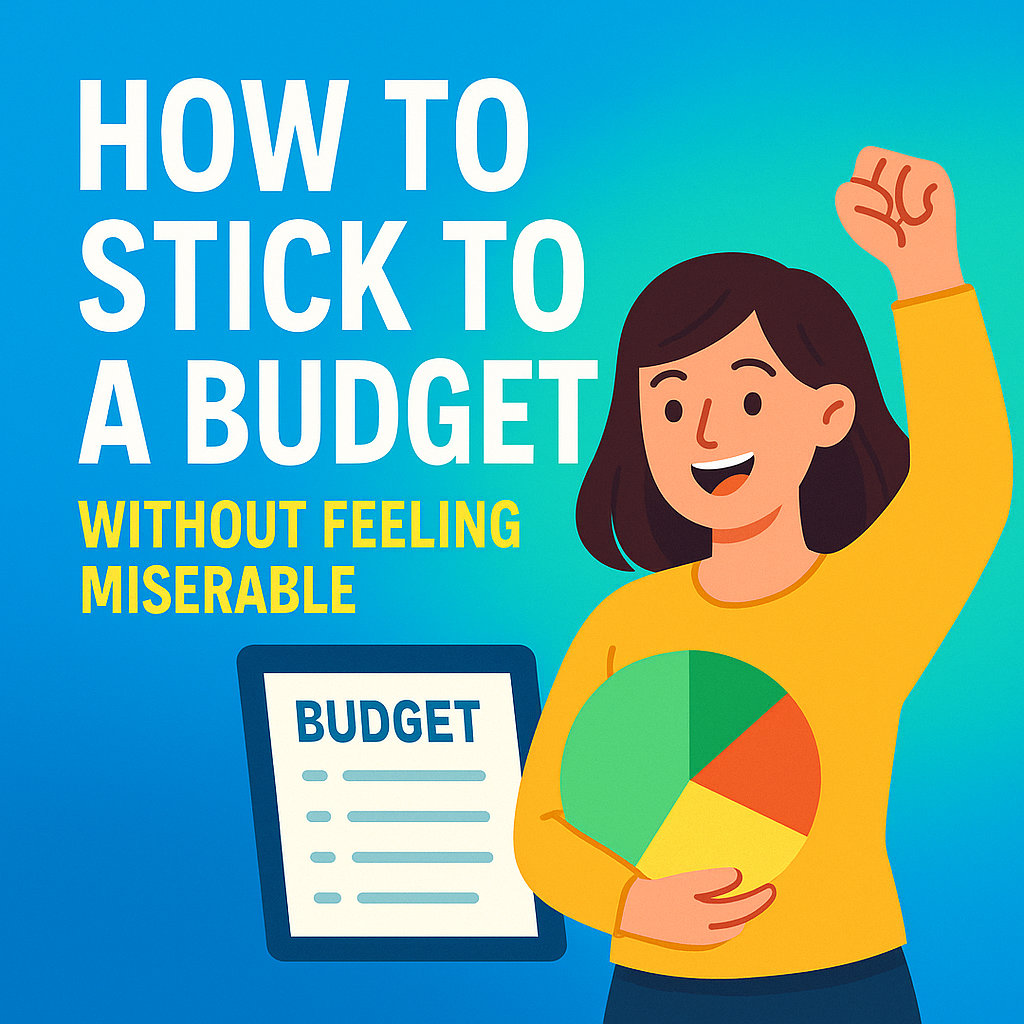
Creating a monthly budget is the easy part — sticking to it is where most people struggle. And let’s be honest, the word “budget” can feel like code for no fun ever again. But it doesn’t have to be that way.
Sticking to a budget doesn’t mean you have to cut out everything you enjoy. It’s about finding balance, being intentional with your money, and leaving some space for joy. Here’s how to do that — without feeling like you’re stuck in financial jail.
1. Choose a Budgeting Style That Actually Works for You
If your current budget feels restrictive or overwhelming, you might be using the wrong method. A common trap many people fall into is building a plan that looks great on paper — but doesn’t fit their lifestyle. Don’t force yourself into a budgeting style that doesn’t fit you. If tracking every dollar feels exhausting, try something simple like the 50/30/20 rule — 50% for needs, 30% for wants, and 20% for savings or debt. It gives you structure and flexibility.
For example, if you’re new to budgeting or not confident with numbers, it’s better to start simple. Our guide on how to create a monthly budget (even if you’re bad with money) walks you through the process step by step, without any complex math or jargon.
2. Don’t Cut All the Fun
The fastest way to burn out is to remove all the things you enjoy. A budget with zero room for entertainment, dining out, or hobbies is bound to collapse. In fact, one of the most common budgeting mistakes is being too extreme.
Budgeting should help you take control of your money — not suck the joy out of life. Allocate a small “fun money” fund each month, guilt-free.
3. Understand Your Why
Your budget should reflect your values. Whether you’re trying to pay off debt, build an emergency fund, or save for a big trip, knowing why you’re budgeting will keep you motivated. When you’re clear on the purpose, the sacrifice doesn’t feel so painful.
4. Automate the Hard Stuff
Set up automatic transfers for your savings, investments, or debt payments. This removes decision fatigue and helps you stay consistent, even when motivation dips.
If you’re working with limited income, automation can be especially powerful. In our survival guide to budgeting on a low income, we show how even small auto-transfers can build momentum over time.
5. Accept That You’ll Slip Up
You’re going to blow your budget occasionally — and that’s okay. The goal is progress, not perfection. The key is bouncing back quickly and tweaking what didn’t work.
6. Make It Visual (and Slightly Fun)
A budget doesn’t have to live in a boring spreadsheet. Tools like a monthly budget calculator can help you visualize your spending and make the process feel more interactive. It’s much easier to stay motivated when you can literally seewhere your money’s going.
Final Thoughts
Sticking to a budget doesn’t mean sacrificing happiness. The real secret? Build a plan that supports your goals and your life. Give yourself grace, stay flexible, and don’t forget to celebrate the wins — even the small ones.
